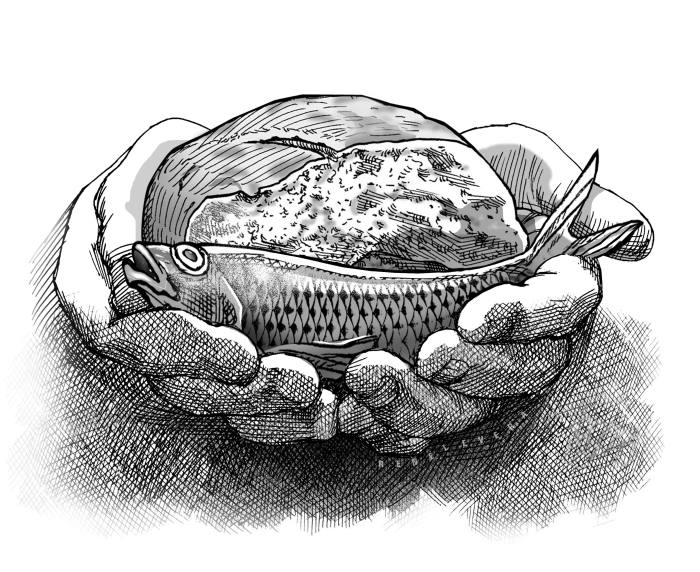
Hardly a week passes without the wife and I travelling to a southern town on the island. By this time we have acquired a certain mastery of the road, and the wife – because invariably she takes the wheel – knows when to make a turn to the left or the right by heart, without asking instructions from me so as not to disturb my sleep.
Anyway, I know when to wake up, mostly after an hour of travel, when the road begins to court the sea, and the view becomes interesting, especially as the light inclines at early morning or late afternoon. The sights I refuse the travel-induced somnolence to deprive me of include long stretches of green, and vast open spaces that somehow the trees steer clear of, as though reserving them for a big event – perhaps a huge rally or concert, although I find such a gathering improbable in these places considering their distance from the urban centers.
Somehow, these vacant lots remind me of the miracle of the multiplication of loaves and fishes, which to a man the evangelists write about. After John the Baptist died, Jesus and his companions boarded a boat and crossed the Sea of Galilee to repair to a deserted place. But a crowd had gathered there ahead of them, having followed them on foot from the towns.
John writes that when Jesus saw the people he asked Philip – just to test him because he already knew what to do, “Where can we buy enough food for them to eat?” Philip made a quick mental calculation and declared that they would need to spend a fortune to feed the multitude.
Andrew, Simon Peter’s brother, butted in and wryly remarked, “There is a boy here who has five barley loaves and two fish; but what good are these for so many?”
But Jesus said, “Have the people recline.”
John writes, “Now there was a great deal of grass in that place” – exactly the condition of the idle lands that we pass by regularly. One, in particular, ringed with bamboos, allows just one footpath to cross it, stretching from the highway to a cluster of houses behind the trees, whose presence the smoke of cooking betrays. This vast swath of countryside, thanks to the rains, has deep green grass. There, which can take in close to five thousand people, I imagine the crowd reclining, as in Jesus’ time.
John adds that “Jesus took the loaves, gave thanks and distributed them to those who were reclining, and also as much of the fish as they wanted.” When the people had their fill, Jesus told the disciples to gather the fragments left over “so that nothing will be wasted.” The fragments filled 12 wicker baskets.
What would happen if we held a rally or concert on a grassy field such as this? The litter – tissue paper, cigarette butts, beer bottles, banana peels, bits of food, human vomit – would startle the sunrise. And the humble people who work as cleaners will have to wield their brooms and improvised garbage picking equipment throughout the lot for most of the morning.
In the case of Jesus and the disciples, they restored the grassy place to its original condition, perhaps with hardly a green blade out of place. Although the leftover fragments collected might not appear dirt-free and hygienic, having them gathered evinced the Lord’s policy against wastefulness and disregard for the integrity of the environment.
Besides, those who witness a miracle should not squander any part of it, and must gather what remains of it – the recollection of how it happened and the learning that it leaves – or else it will just join the rubbish and butt ends that time litters as it unrolls the faithless hours.